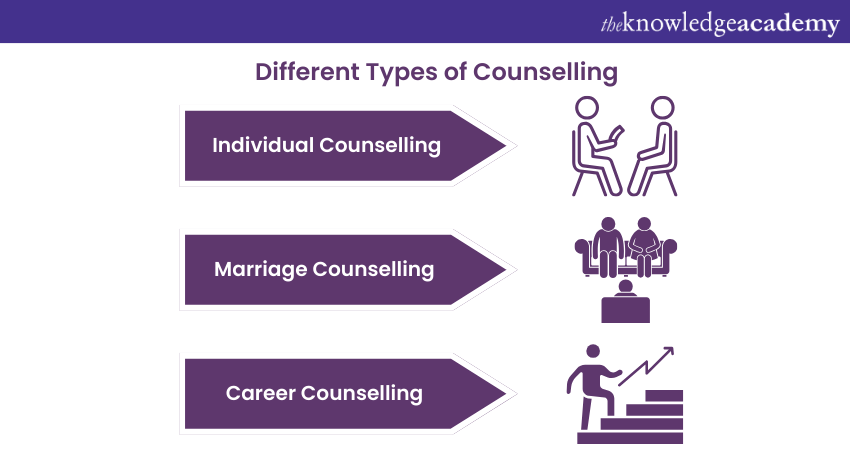Discovering the Advantages of Virtual Therapy in Modern Mental Healthcare
The increase of virtual therapy notes a significant change in mental wellness treatment. It supplies enhanced accessibility, enabling people from varied histories to seek help without geographical restrictions. Adaptability in organizing fits varying way of livings, while the convenience of home can cultivate visibility. The ramifications of these modifications prolong past simple benefit. The evolving landscape of therapy elevates vital inquiries concerning its long-term effects on person interaction and therapy results.
Improved Access for All
Standard therapy typically presents obstacles such as geographical location and organizing problems, virtual therapy substantially improves ease of access for individuals looking for mental health and wellness assistance. By removing the requirement for physical travel, virtual therapy permits clients from remote locations or those with wheelchair obstacles to link with qualified specialists. This setting of therapy can get to underserved populations that may lack neighborhood psychological health and wellness resources, thus attending to differences in accessibility to care. In addition, virtual systems can cater to diverse demands, using solutions in several languages and accommodating numerous social histories. Customers can involve with a wider variety of professionals, giving them with options that align with their certain requirements and choices. This enhanced access fosters a much more inclusive setting, enabling people to look for aid without the preconception usually connected with in-person gos to. In general, virtual therapy stands for a substantial improvement in making mental health care more available to all.
Adaptability in Organizing Procedure
As virtual therapy remains to gain traction, its fundamental flexibility in organizing sessions shows to be a considerable advantage for numerous people. Unlike standard in-person therapy, virtual therapy enables clients to select session times that best fit their individual and professional dedications. This versatility fits those with demanding job timetables, family obligations, or various other commitments that can make participating in physical visits challenging.
Customers can easily reschedule or change their sessions as needed, minimizing the tension linked with inflexible visit systems. The availability of numerous time slots throughout the week, consisting of nights and weekends, additionally enhances accessibility. This flexibility not just encourages consistency in presence but also fosters a greater commitment to the therapeutic procedure. Ultimately, the adaptability in organizing sessions represents a transformative shift in psychological health and wellness care, equipping people to prioritize their well-being without sacrificing other aspects of their lives.
Comfort of a Familiar Environment
The convenience of an acquainted environment significantly improves the efficiency of virtual therapy for several clients. Engaging in therapy from the safety of their very own homes permits individuals to really feel even more comfortable, lowering anxiety that may go along with typical in-person sessions. This familiarity can promote open interaction, making it possible for customers to express their ideas and sensations extra freely.
Additionally, the visibility of individual things and the ability to control their environments can add to a sense of security and relaxation. Clients often report that being in a comfy room enables them to concentrate much more on the healing process as opposed to the setting itself.
In addition, the informal nature of virtual sessions can help liquify barriers that may exist in a standard office setting, cultivating a deeper connection with therapists. In general, the convenience of acquainted surroundings plays a necessary role in boosting the healing experience and performance for lots of people looking for mental health and wellness assistance.
Larger Series Of Restorative Options
A bigger variety of healing choices becomes offered via virtual therapy, enabling clients to gain access to various methods that may not be practical in traditional setups. This adaptability allows people to check out varied methods such as cognitive-behavioral therapy, mindfulness methods, art therapy, and also specialized treatments like trauma-informed care or dialectical actions therapy.
In addition, customers can pick from a broader spectrum of specialists, including those who specialize in niche locations or particular populations, boosting the chance of finding an ideal suit. Virtual platforms usually supply access to group therapy sessions, support neighborhoods, and workshops that might be geographically inaccessible or else.
This range empowers customers to participate in their recovery process according to their unique choices and requirements, potentially raising motivation and commitment to therapy. Consequently, the landscape of mental wellness care ends up being a lot more inclusive and adaptable, dealing with a larger array of individual experiences and difficulties.
Decreased Stigma Surrounding Therapy
Accessing therapy through virtual systems contributes to a considerable decrease in the preconception commonly linked with mental healthcare. By giving a very discreet and personal environment, virtual therapy enables people to seek assistance without the worry of being evaluated or identified. This anonymity attract those that might otherwise think twice to pursue in-person therapy because of societal understandings bordering psychological health and wellness.
As the prevalence of virtual therapy rises, it stabilizes the discussion around mental wellness, making it a more acceptable component of everyday life. People commonly really feel a lot more comfy reviewing their experiences on-line, promoting visibility and minimizing sensations of isolation. The accessibility of these solutions additionally motivates a broader demographic to involve with psychological health and wellness resources, fostering a society of assistance rather than pity. Inevitably, the increase of virtual therapy plays a crucial function in reshaping attitudes towards looking for help, adding to a much more approving culture pertaining to mental wellness obstacles.
Cost-Effectiveness and Affordability

Minimized Session Prices
Many people seeking mental health assistance locate that virtual therapy considerably decreases session expenses compared to standard in-person options. The elimination of travel expenditures and pause job typically adds to overall financial savings. Additionally, many virtual specialists provide competitive rates due to reduced above prices linked with maintaining a physical workplace. This change in expense allows customers to gain access to high quality mental wellness services without the financial strain that may include traditional therapy. For several, this price allows a lot more frequent sessions, which can enhance treatment outcomes. Consequently, virtual therapy not just democratizes accessibility to mental healthcare however also gives a sustainable financial version that aligns with clients' spending plans, making psychological health and wellness assistance more obtainable for a larger target market.
Broadened Gain Access To Choices
While traditional therapy frequently provides logistical barriers, virtual therapy substantially broadens accessibility choices for individuals seeking mental healthcare. By eliminating the need for travel and enabling adaptable scheduling, virtual therapy suits diverse way of livings and dedications. This access is specifically helpful for those in remote locations or with mobility obstacles. Furthermore, the cost-effectiveness of virtual therapy decreases monetary strain, making psychological health solutions extra reachable. Many platforms offer tiered prices or sliding scale fees, advertising affordability. Insurance companies increasingly recognize virtual therapy, more boosting its financial access. Overall, virtual therapy not only expands the range of that can get care yet also addresses financial obstacles, making psychological health and wellness support a lot more inclusive and possible for all.
Improved Continuity of Treatment
Improved connection of treatment arises as a substantial advantage of get more info virtual therapy in modern psychological health and wellness care. This approach permits clients to maintain regular interaction with their specialists, regardless of geographical barriers or organizing disputes. adhd counselling. The adaptability of virtual sessions promotes routine check-ins, which are necessary for monitoring progression and adjusting therapy plans as required
In addition, electronic health records and telehealth systems help with smooth details sharing among care companies. This interconnectedness ensures that all experts entailed in a patient's care are upgraded on therapy growths, resulting in even more collaborated and effective interventions.
Individuals usually experience reduced anxiety and enhanced interaction because of the benefit of accessing therapy from acquainted atmospheres. Such availability improves adherence to treatment regimens, ultimately boosting outcomes - couples counselling. To summarize, virtual therapy not just bridges spaces in psychological health solutions however likewise strengthens the continuity of treatment, a critical component of successful therapeutic partnerships
Regularly Asked Inquiries
Just How Does Virtual Therapy Make Sure Privacy and Personal Privacy for Customers?
The existing question addresses the steps virtual therapy utilizes to secure customer discretion. Using encrypted platforms, safe and secure logins, and compliance with guidelines like HIPAA, virtual therapy guarantees that delicate information remains personal and inaccessible to unapproved people.
Can I Switch Over Therapists Easily in Virtual Therapy?
Changing specialists in virtual therapy is normally simple. Customers can interact their desire for an adjustment through the system, enabling flexibility in finding a far better match without the logistical difficulties of in-person appointments.
What Modern technology Do I Required for Virtual Therapy Sessions?
To take part in virtual therapy sessions, a private typically needs a dependable net connection, a computer system or mobile phone with a camera and microphone, and access to a safe video conferencing platform defined by their specialist.

Are Virtual Therapy Procedure as Effective as In-Person Procedure?
Recent research studies suggest that virtual therapy sessions can be equally efficient as in-person sessions, depending on the person's choices and scenarios. Aspects such as convenience and availability might boost the overall healing experience for some clients.
What Should I Do if I Experience Technical Issues During a Session?
If technical issues arise during a session, one ought to steadly connect the issue to the therapist, attempt to reconnect, or button to a back-up technique. Persistence and versatility are vital in handling these disruptions.